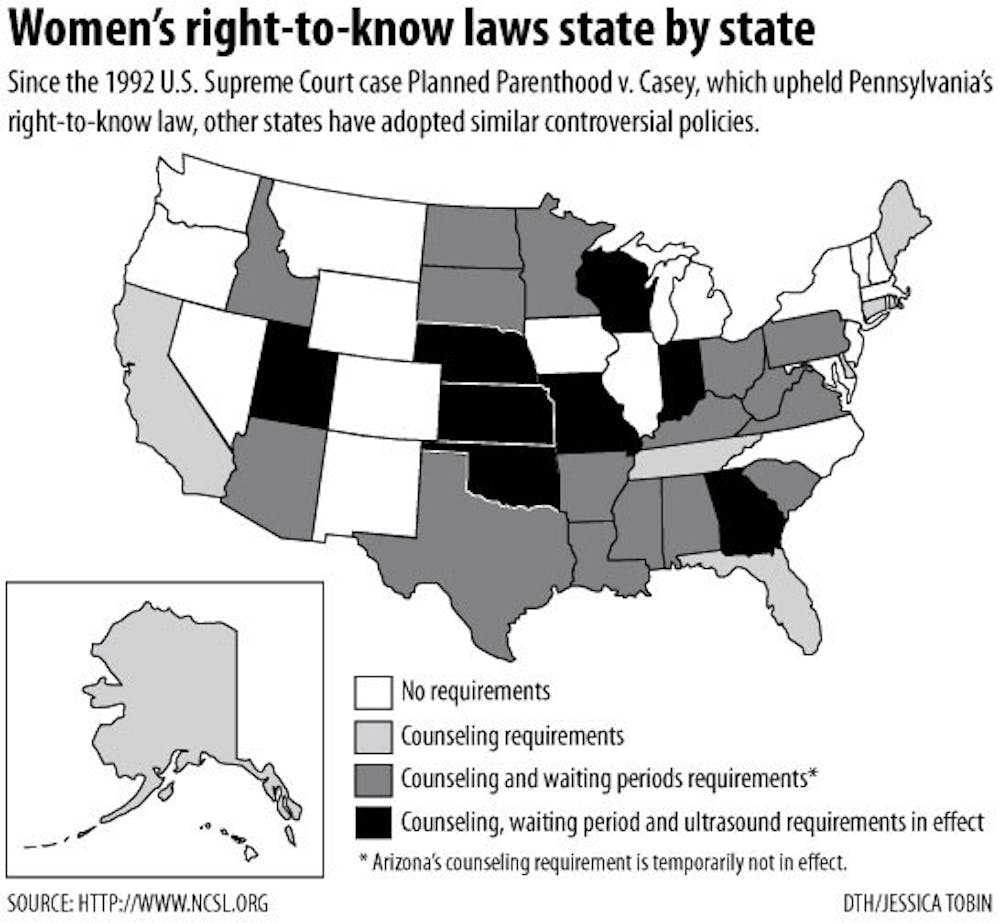Planned Parenthood is already fighting the N.C. General Assembly for funding, but it could soon decide to file another lawsuit against the state — this time about the Woman’s Right to Know Act.
The law requires a 24-hour waiting period before receiving an abortion, as well as ultrasound images and other information to be offered to the patient. It has been criticized by a range of pro-choice organizations, including Planned Parenthood and the American Civil Liberties Union, as an unprecedented step by the state into a woman’s privacy.
“The Republicans’ social agenda has, with this bill, invaded a woman’s life as never before – by marching straight into her doctor’s office and dictating the medical advice and treatment she receives,” said Gov. Bev Perdue in a statement after her veto of the bill was overridden.
But N.C. Rep. Paul Stam, R- Wake, the House majority leader, said the law is constitutional and supported by a majority of the state, according to a poll taken by Civitas Institute, a conservative think tank.
“This is not a change in the people; this is a change in the leadership,” he said.
Right-to-know legislation has been upheld in other states, and the U.S. Supreme Court decided in 1992 that restrictions on abortion are constitutional if they don’t place an undue burden on a woman’s right to the procedure.
“This is about giving women all the information so they can make informed decisions,” Stam said.
Opponents to the law say the new requirements make getting an abortion more cumbersome, especially to rural women who would need to go to an abortion provider twice because of the 24-hour rule and to low-income women paying for the ultrasound.
“The cost to the patient would go up, but we’re trying to figure out how to implement this at the lowest possible cost to our patients and still be as accessible as possible,” said Janet Colm, the chief executive officer at Planned Parenthood Central North Carolina.




